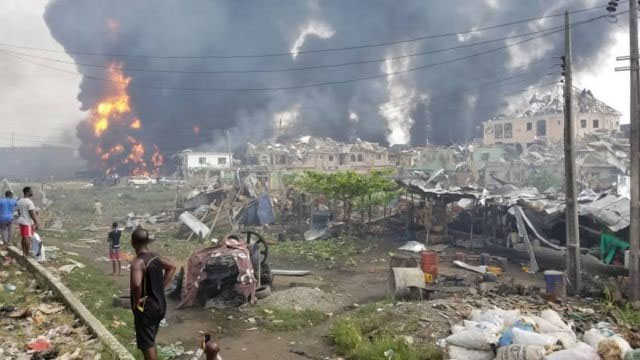Several people have died in twin blasts in the Ugandan capital, Kampala, local witnesses have said.
The blasts come weeks after a bombing killed one and injured several others in another part of the city.
The two blasts are suspected to be from suicide attacks.
Reports indicate that the first explosion occurred outside a police station and the second close to the parliamentary building although it appeared to be targeting another structure housing an insurance company.
The three suicide attackers as well as three other people were killed and another 33 were injured, police spokesperson Fred Enanga told Ugandan NBS Television.
“What we can say [is] this was an attack but who is responsible is a matter that is under investigation,” Uganda’s Assistant Inspector General of police Edward Ochom told AFP.
Videos shared on social media showed cars engulfed in flames, large plumes of smoke and debris scattered across the street.
Witnesses also reportedly saw lawmakers evacuating the area of the parliamentary building, national broadcaster UBC said.
Security forces have cordoned off both scenes and Tuesday’s parliamentary session was called off.
Police said they had foiled another possible attack after chasing down and disarming a suspected suicide bomber.
Another video showed people running away from the scene of one of the blasts.
Emmanuel Ainebyoona, a spokesperson for the ministry of health, said on Twitter that a local hospital was “currently attending to about 24 causalities. Reports indicate four are in critical condition.”
Enanga blamed Allied Democratic Forces (ADF), a group with connections to the so-called “Islamic State,” for the blasts, saying “the hallmarks [of the attacks] are consistent with the ADF.”
Ugandan soldiers have been fighting against al-Qaida-linked al-Shabab forces in Somalia.
The ADF also claimed responsibility for an attack that killed one and injured several others at a restaurant in Kampala on October 23.
The militant group was originally founded by Ugandan Muslims but has since moved its main bases into the mountainous forests of the neighboring Democratic Republic of Congo.
By Jamila Akweley Okertchiri


